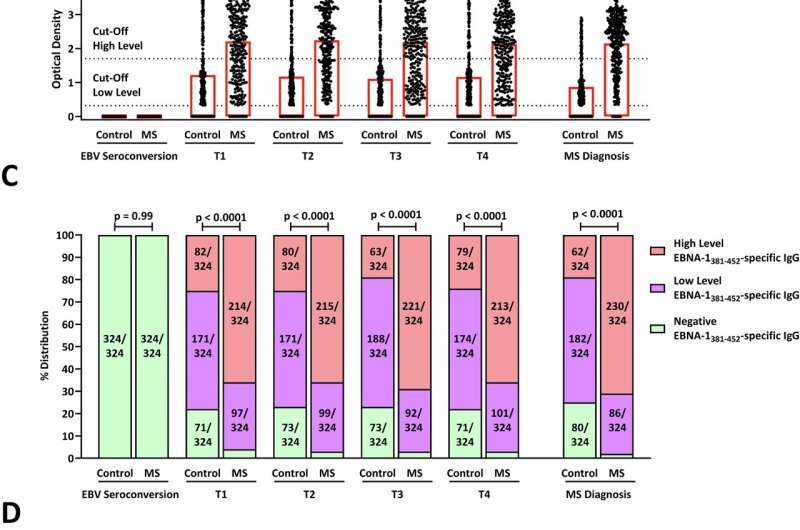The new method was developed by research teams led by Elisabeth Puchhammer-Stöckl and Hannes Vietzen from the Center for Virology as well as Thomas Berger and Paulus Rommer from the Department of Neurology, all at MedUni Vienna. It is based on an immunological test that identifies specific antibodies against a protein of the Epstein-Barr virus (EBV). This widespread virus is known to be a key factor in the development of multiple sclerosis, with EBV detectable in almost all cases of MS.
Specifically, the test detects autoantibodies, i.e., antibodies that have originally developed against a specific section of the EBV protein EBNA-1 (Epstein-Barr nuclear antigen 1), but which also cross-react against specific structures in the human brain. These antibodies can be observed already within three years after the EBV infection—and long before clinical symptoms of MS are observed in the affected individuals.
By repeatedly measuring these antibody levels, a significantly increased risk of a later MS diagnosis can be identified. “Our research shows that people in whom high levels of these antibodies are detected at least twice will likely develop MS in the following years,” says the study’s first author Hannes Vietzen.

